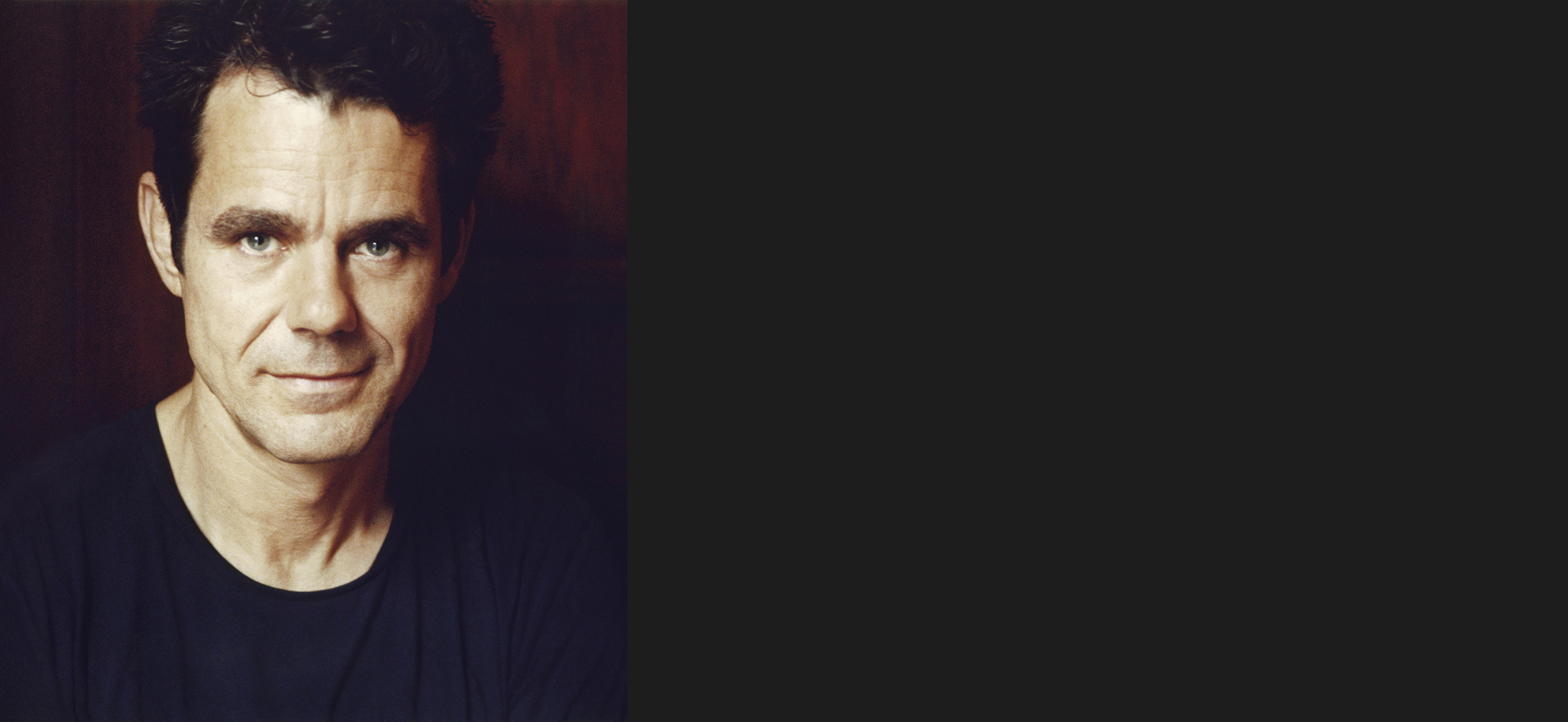A Portrait of director Tom Tykwer
Tom Tykwer © Joachim GernTom Tykwer is under many kinds of pressure. The filmmaker is currently working on the scripts for the final season of his successful series BABYLON BERLIN, and at the same time he is busy editing THE LIGHT, his first cinema film in eight years. On top of that, one of his children has fallen ill. “It‘s grotesque: you go to bed at two o‘clock and feel as if you’ve got nothing done,” he laments, rather exhausted.
But apart from this type of external stress, the 59-year-old has also made a conscious decision to expose himself to creative pressure. Since 2017, he and his fellow directors Achim von Borries and Hendrik Handloegten have been developing the epic thriller panorama of BABYLON BERLIN, creating the most expensive ever German television series, which has now been shown in over 100 countries worldwide. He will be filming the fifth and final season as from November. Although the makers actually treated their BABYLON BERLIN like a “never-ending movie”, he had begun to ‘miss’ something: “Whereas you can take your time developing the plot and characters of a series, working for cinema you have to fit everything into two to two and a half hours – still achieving the right measure of intensity and plausibility. And I was keen to face that challenge again.”
This desire was linked to another motive: “I really wanted to get back to the present, away from the Berlin of the 20s and early 30s. I was longing for people who were familiar to me, with a cultural proximity in my own sphere of life, where I didn’t have to imagine ‘what it was like’.” THE LIGHT centres on a modern middle-class family that begins to change in various ways under the influence of their new Syrian housekeeper. However, Tykwer had no interest in making things easier for himself. On the contrary, precisely because the protagonists were familiar to him, he wanted to ‘surrender to them’: “In a way, I live in this scenario and I am looking through my own eyes to some extent. It’s unsettling but interesting because as a filmmaker you’re a bit naked. I don’t think I’ve ever exposed myself as much as I do here.”
Tykwer cites these points of contact with his personal experience: “I am a representative of a middle-class generation that has categorized itself as progressive and cosmopolitan and attempted to pass this on to its children. Now we are being successively and ever more catastrophically confronted by our failures. I felt an urgent need to address this state of affairs and to bring in my generation’s insecurities as well as those of my children. At first glance, there is no clear difference between the two. But because their parents’ ideas have not been particularly effective, these young adults need to find their own place in relation to the older generation. The only problem is that they haven’t actually learnt to reject them. It’s a complicated process. I believe that a lot of people are dealing with this issue at present. And my film aims to be part of that debate.”
In the film, the catalyst for this process is the Syrian protagonist, whose motives and goals are left deliberately unclear at first. Initially, this sounds like a piece of intimate theatre, but Tykwer adds: “The film begins as intimate theatre, but this character broadens its horizons, so that it suddenly becomes epic.” This is not only evident thematically, but also in a stylistic ‘mix of genres’: “There are fantastic sequences where we join the characters in their dreams and leave the tensions of reality behind us. There is animation. There is singing and dancing. Our desire to explore cinematic means is unbroken.” But the means are not an end in themselves: “I see this as fitting in with a chaotic universe of characters thrown together, all perceiving the world in different subjective ways. Ever since RUN LOLA RUN, I’ve loved working out what film language is right for what character.”
Although Tykwer is returning to the narrative forms of cinema, he does not want to leave the world of series behind. Currently, he is promoting two projects “quite massively”: “I am still enthusiastic about the format. Series have established themselves as an important narrative form because they offer so many possibilities that are lacking in film.” But that doesn’t mean he will be turning his back on the big screen again after THE LIGHT. On the contrary: “The cinema film is a world of its own and the series cannot compete with that. They are simply two different species.”
Rüdiger Sturm

